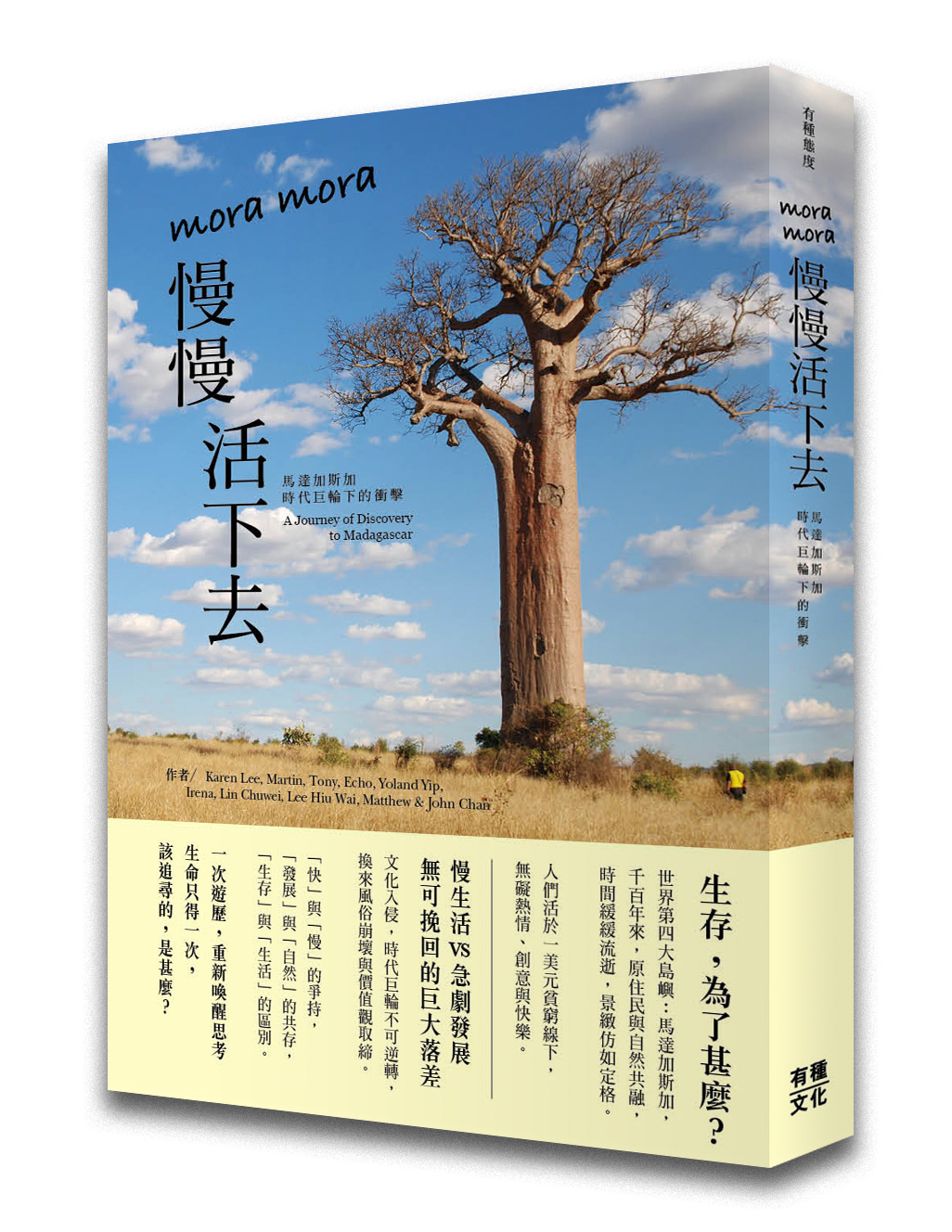Communities of Practice (CoPs)
Completed Projects (AY2016-2019):
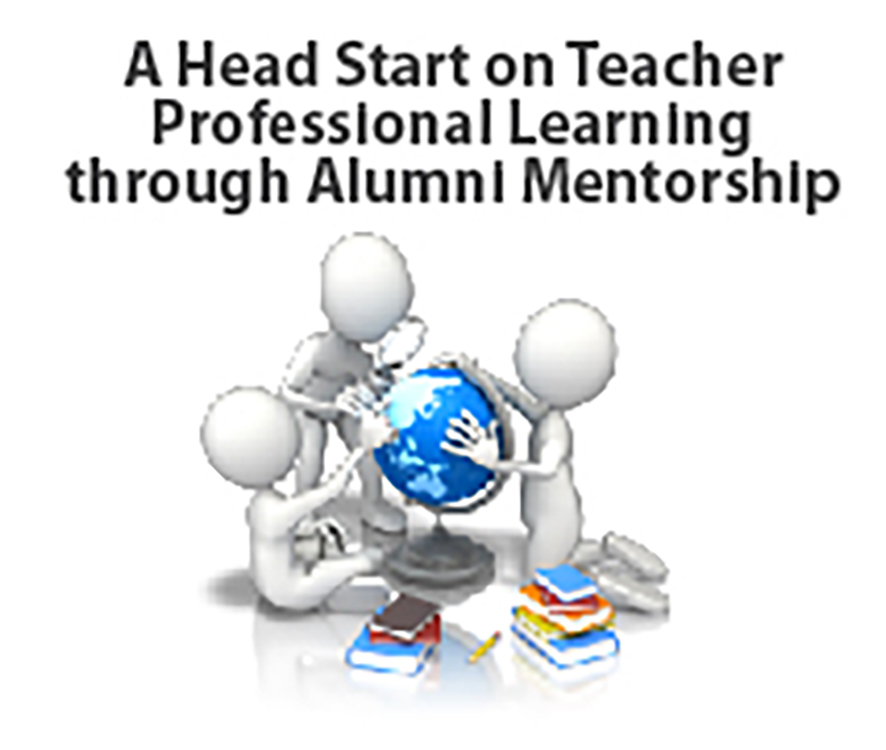

A Head Start on Teacher Professional Learning through Alumni Mentorship
Abstract:
Hong Kong Baptist University (HKBU) is a forerunner in initial teacher education through the launch of its double-degree programmme in English language & literature and English language teaching (ELT) in 2005. This collaborative venture between the Faculties of Arts and Social Sciences has nurtured new generations of primary and secondary teachers of English since its first batch of graduates in 2009. However, as the success of the programme gained recognition by the University Grants Committee (UGC), incongruities in teaching and learning have been identified in its five-year academic structure since 2012, and in the doubling of the provision of double-degree places in 2016. Such incongruities include the increasing diversity of Hong Kong Diploma of Secondary Education (HKDSE) graduates with a weak orientation to teaching, theory-practice dichotomy as a long-standing concern for teacher preparation, and aspiring HKBU students’ lack of symbolic capital in identity construction. The transition of initial teacher education from an elite system to a mass system needs to be addressed, if HKBU is to achieve its declared graduate attributes (citizenship, knowledge, learning, skills, creativity, communication and teamwork), as well as its goal of becoming a regional leader in whole person education (vision 2020).
Education serves intellectual, social, political and economic purposes. One of the fundamental assumptions of schooling is to prepare young people to meet labour market needs in the hyper-competitive global sphere. With the recognition of teachers as the most important factor in raising educational standards, teacher preparation through five-year double bachelor’s degree programmes (in a major subject and the teaching of the relevant subject) should be given top priority in educational policy agendas, if Hong Kong is to continue to merit one of the world’s best school systems (Barber & Mourshed, 2007). The everyday challenges that classroom teachers face within the complexity of their own institutional contexts need to be placed at the forefront of initial teacher preparation. To extend support to HKBU’s culture of sharing and continuous effort to improve teaching and learning (Wong et al.,2016), the establishment of a community of practice (CoP) premised on a social theory of teacher professional learning through alumni mentoring and advising may be timely.
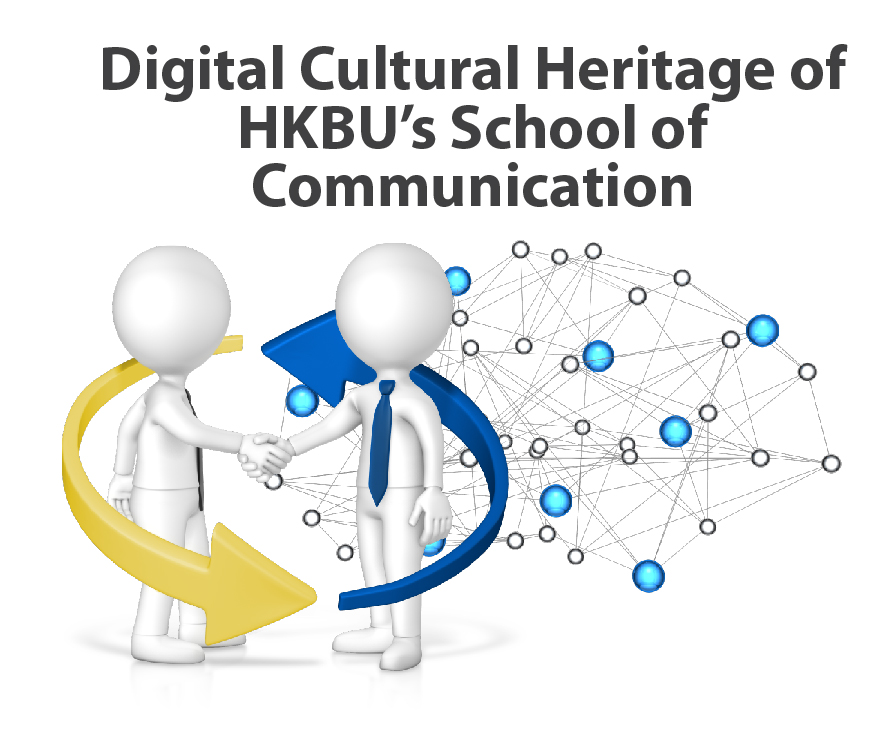

Digital Cultural Heritage of HKBU’s School of Communication: An Inside-Out Engagement Approach to Community of Practice
Abstract:
In lieu of the 50th anniversary celebration of the School of Communication in 2018, a Community of Practice engagement project is proposed to provide current students the sensory, social and democratic experiences of COMM education through reconnecting alumni, faculty and staff in the past 50 years to understand and attain the graduate attributes in HKBU’s whole person education. “COMM2gether Through The Years” is the first digital archive project among communication schools in Asia Pacific about its own education history and cultural heritage. In collaboration with Library and CPRO, this CoP project aims to I) improve the existing mentoring system through the close connections with the COMM alumni; 2) enhance teaching and learning of the CoP members and students across three departments (i.e. COMS, JOUR and AF) via the e-community archive po1ial; and 3) enable COMM students to showcase and publish their works about the essential graduate attributes shared by alumni, faculty and staff.
Using an oral history and inside-out approach, over 15 faculty, 250 students and 300 alumni will participate in this CoP through class projects, digital archive portal, social media platforms, news program, exhibitions and media publicity. Such engaging ways to reconnect alumni and current students would allow students to observe the important HKBU graduate attributes which lead to career success. The CoP project also facilitates the future development of HKBU COMM as it strengthens its distinctive competitive advantage – a strong alumni network which gets on with the changing times of the industry.
Completed Project (AY2012-2015)
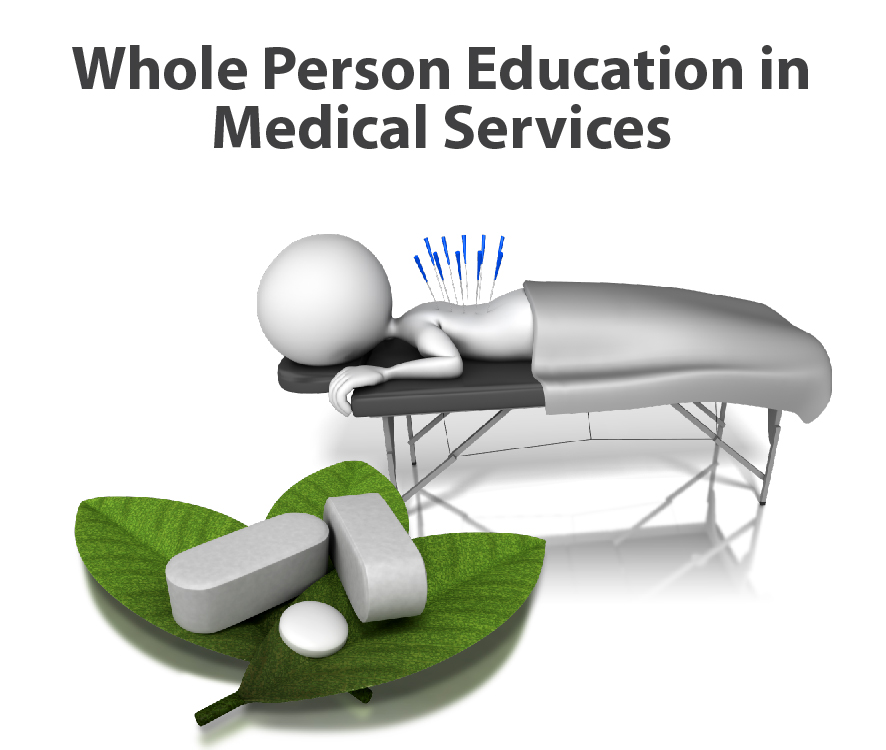

Whole-person Education in Medical Services
Abstract:
“大醫精誠” is a traditional Chinese Medicine (TCM) maxim depicting that TCM practitioners should not only have excellent professional knowledge and skills but also high morality and sincerity. This is by and large in line with our institutional Graduate Attributes (GAs). However, our current curriculum is inadequate to achieve these goals. Ample evidence shows that there are often dissonances and conflicts occurring within or outside campus which are obviously not in line with our educational missions. The current project endeavors to unite and reinforce our education efforts on TCM students by forming a Community of Practice (CoP) on whole-person education (WPE) for medical services. This CoP consists of colleagues from the School of Chinese Medicine as well as from other Departments with common concerns and enthusiasm. We will not only reinforce our current curricular subjects (namely Medical Ethics, Service Leadership in Action – Medical Services) and departmental Moral and Disciplinary Committee, but also introduce a series of co-curricular activities for a better and synchronized action in order to better achieve our institutional GAs in terms of (1) citizenship in particular for ethical reasoning, (2) creativity in particular critical thinking, (3) communication in particular for positive and constructive dialogue, and (4) teamwork for cooperative working. The achievements in these aspects will be evaluated by direct (course rubrics, activity journals, reports) as well as indirect measures (qualitative, i.e. interviews, and quantitative, i.e. questionnaires/surveys, minute papers etc.) and by different stakeholders and instruments. Since the CoP builds on and enforces our current courses and departmental committee, the two-year project will be self-sustaining and continued by CMTD after the CoP establishes the network and communication platforms. The experience gained in this project will be advocated and applied to other subjects, and perhaps shared among other departments and institutes. In the end, our TCM education will be more all-rounded and value-added, and our students will have a better service attitude and skills, ready to serve and contribute to the society in a more professional way.
.jpeg)
.jpeg)
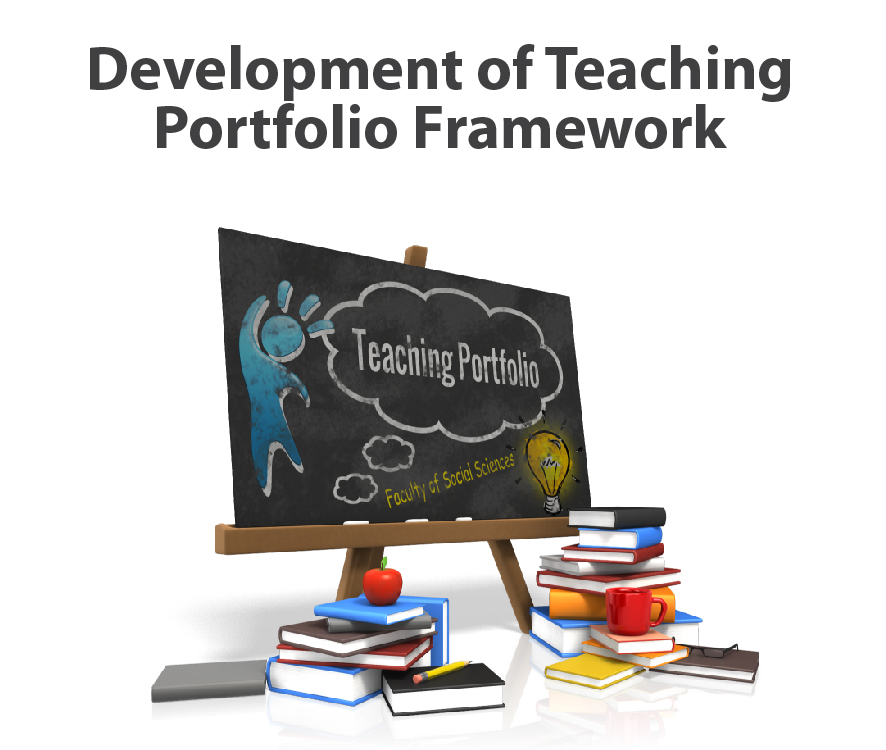

Development of Teaching Portfolio Framework
Abstract:
This proposed project aims to build a multidisciplinary community of practice (CoP) within the Faculty of Social Sciences for the purpose of developing a teaching portfolio framework for documenting pedagogical evidences, reflecting on and sharing of good teaching and learning practices and appraising teaching performance. The CoP will consist of scholars from the seven different departments of the Faculty and a representative from the University Centre for Holistic Teaching and Learning. The teaching portfolio framework will be implemented and reflected upon within the Faculty and could be further sustained through dissemination across other university faculties and schools. This project will provide a unique multidisciplinary forum for sharing and collaborative inquiry into and reflection upon a spectrum of pedagogies. By making use of the portfolio framework, teaching staff will be able to reflect on their teaching practices and routinely to improve their teaching and students will in turn benefit from improved pedagogies which will enhance their learning. The collaborative process of establishing a teaching portfolio framework will also contribute to the scholarship of teaching and learning of the university as a whole.
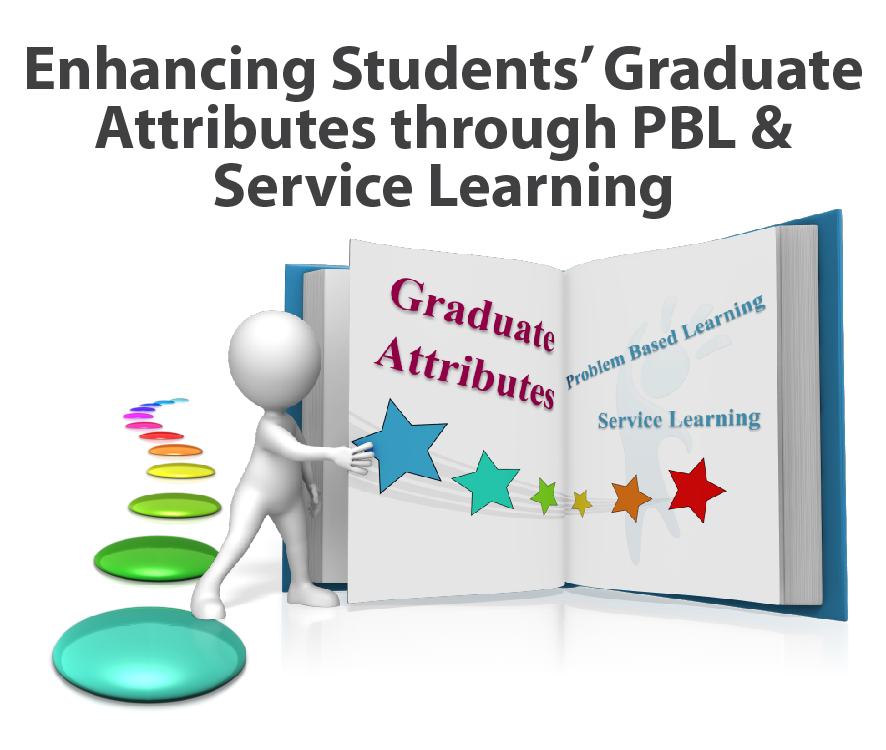

Enhancing students’ graduate attributes (GAs) through problem based learning and service learning
Abstract:
The goal of education is to nurture our students and develop them as whole persons. However, the emphasis of tertiary education has always been on the acquisition of technical knowledge that is pertinent to the profession studied. Until recently, increasing emphasis is being placed on university graduates’ attainment of generic capabilities that enable them to function effectively as citizens in both local and international communities. In this connection, this specific CoP has gathered a group of nine academic and administrative colleagues who are interested in adopting innovative pedagogies to improve students’ learning and assess how well our students have attained the GAs through the participation in classroom activities and/or services in the community. Two teaching and learning activities (TLAs) viz Problem Based Learning (PBL) and Service Learning (SL) will be adopted in order to improve students’ various generic capabilities, e.g. social responsibility, problem-solving, critical thinking and teamwork skills. All participating teachers will choose either PBL or SL as the major TLA in their own courses. The project will be evaluated and monitored through various performance indicators and outcomes measurements, e.g. course-embedded assessments, surveys, interviews, portfolio, etc. It is believed that the findings from this CoP project will contribute to the knowledge base of teaching and learning at HKBU and the impact of the use of PBL and SL will be evident. We trust that members of this CoP will continue the momentum of adopting these pedagogies and sharing their teaching experiences and practices even after the project is completed.
.jpeg)
.jpeg)


Create a Model for Student e-Portfolios
Abstract:
.jpeg)
.jpeg)
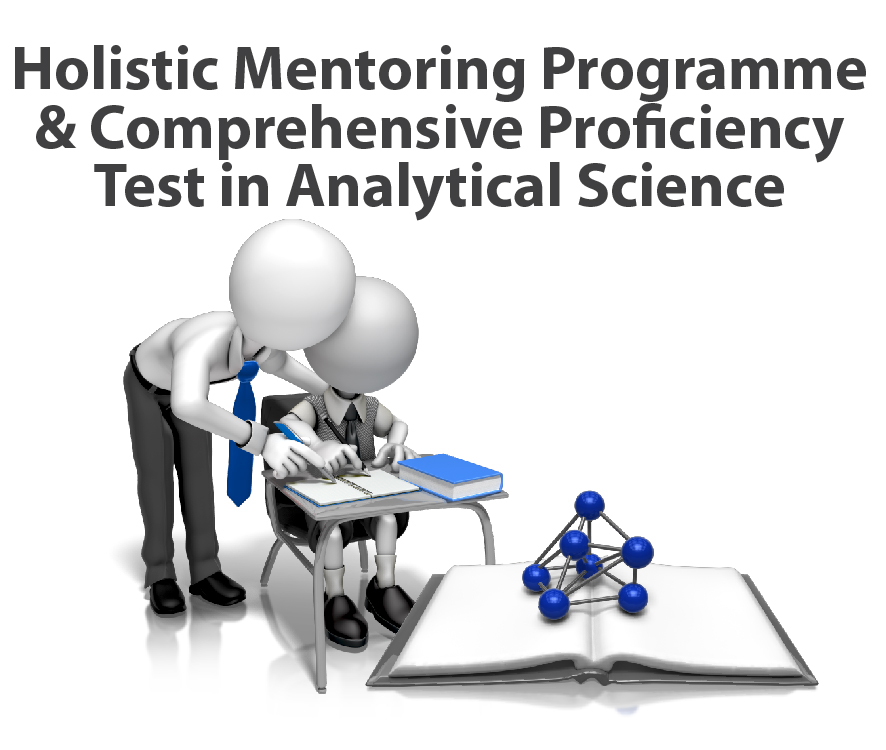

Enhancing Student Learning through Holistic Mentoring Programme and Comprehensive Proficiency Test in Analytical Science
Abstract:
Hong Kong Baptist University has prided for her commitment in offering whole person education for the young generations of our community. To complement the regular student-centered course delivery in lecture room, most of the teachers are very concerned on how to nurture the academic growth and maturity of our students via outside classroom activities. This project calls for the perfection of the existing mentoring system and with the intent to make it into a full-fledged academic advising system. Through the implementation of a variety of well planned activities, as a concerted departmental effort (i.e. Chemistry), the life experience and caring attitude of the mentor can be used to inspire our mentees in fully developing their potential as independent learners and responsible citizens via the four year of university education at HKBU. Under the advice of the mentor, the in-depth subject knowledge, generic skills and team-work spirit of our students can be fostered through their participation in the annual “Video Production Competition”. The quality YouTube as the deliverables of this competition after uploading in public domain will serve as a tool to promote public sciences to our community. To offer students more opportunity in polishing their English oral presentation skills and teamwork, student members of the mentee groups are encouraged to participate the “FameLab”, an annual 3-min oral presentation competition on science topic organized by the British Council. The graduate attributes of our students can be further manifested by engaging them in the industrial Internship Programme. In the pilot run of this initiative, selected colleagues from the Biology and the Computing Studies Department are also involved. The rich learning outcomes of the chemistry major students in analytical chemistry benefited from the unique academic design can be assessed by “benchmarked” Proficiency Tests comprising multiple choice test questions which will be constructed from a purpose-built Test Bank fabricated by faculty members of the Chemistry Department.
.jpeg)
.jpeg)


The Data & News Society (D&N): An Interdisciplinary Community of Practice
Abstract:
We have entered what is called “the age of data” and “the age of new media.” Data journalism is the marriage of the two. With vast amounts of data now openly accessible online, and the new infographic technologies available to visualize data, news media are increasingly making use of these valuable mines of data to source and produce their stories. Data journalism – the use of numerical data in the production and distribution of news – is an emerging area in the field of information and mass media.
A Community of Practice (CoP) project has been contemplated in an interdisciplinary setting for the purpose of enhancing learning and teaching effectiveness in training future journalists in data skills. This CoP, “The Data & News Society (D&N)”, will be a multi-disciplinary society involving scholars and professionals from diverse academic backgrounds, including journalism, computer science, statistics, visual communication, and more. Based on this, we will work with professional visual artists to design a logo accordingly.
The D&N will serve as a colloquium for instructors and students (undergrads and graduates) at Hong Kong Baptist University who are interested in the collaboration of data and news. Its aims are 1) to establish a community of scholars from across the hard sciences and social sciences, and 2) to promote learning excellence/achievements by showcasing and/or publishing student works. The ultimate goal of this CoP is to improve instructors’ teaching quality, capacity, and capability, and prepare students for their future jobs in the news media. Efforts will include but are not limited to: Facilitating the necessary collaboration among multiple academic units for making data news possible, utilizing the manpower of appropriate industrial connections in teaching and training duties, providing training series for both instructors and students, supporting students to take active part in data journalism practice, and exhibiting and publicizing high quality student works in data news. Central to these efforts will be a week-long intensive workshop series (Data and News Workshop, DNW) conducted in early or late summer each year, accompanied by an on-campus exhibition of data news by students, in which data journalists and programmers from the media section, current data journalism instructors, and journalism and science students will meet to nurture one another from relevant perspectives. Priority will be given to near-completion journalism and computer science students.
The D&N will be open to all faculty members and students university-wide in order to promote a campus culture of interdisciplinary exchange and sharing. The D&N expects to have ongoing advice and support from the University’s Center for Holistic Teaching and Learning.
Project Website:https://dnnsociety.org/
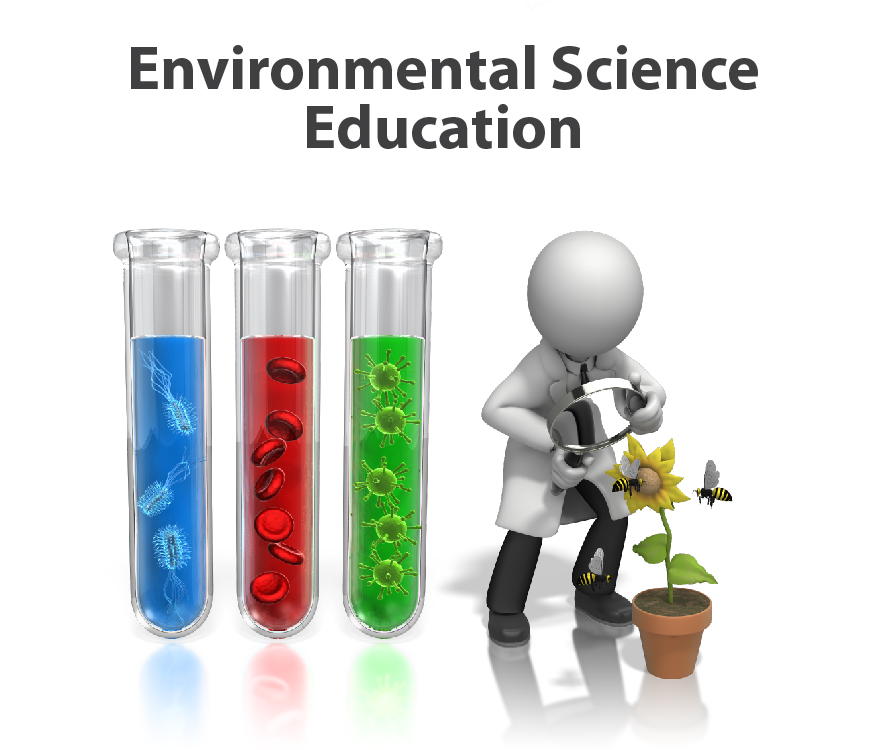

Model of community of practice in environmental science education
Abstract:
Environmental science is a multidisciplinary and integrating area which aims to establish sustainable and strategic policy-making processes. Environmental science education can promote personal initiatives and social participation in the resolution of the increasing challenges of environmental deterioration, and fundamental issues relating to sustainable development of natural resources. However, the conventional form of environmental science education mainly focuses on the classroom teaching. We undertook informal consultation with 60 students from different disciplines; a majority of them were in favor of incorporating practical components aligned with the formal classroom lectures in order to enhance their understanding of the application of environmental science in their daily lives. Because we believe in the importance of environmental science education in raising students’ awareness of the environmental consequences caused by humanity, we wish to share our knowledge and experience in different aspects of environmental science education and hence, form the proposed community of practice (CoP). The prime aim of this CoP is to develop a model transforming the learning design of conventional environmental science education in authentic learning, via E-learning and experiential learning. Major outcome of this CoP is to provide evidence on how students can benefit from the authentic learning and hence, the new form of environmental science education would potentially be integrated in the curriculum for future development. Throughout this CoP, students are expected to encounter a broad scope for the application of knowledge in environmental science into their daily lives; articulate opinions and ideas clearly and coherently; acquire real-time knowledge, skills and possible solutions to tackle some of the modern societies’ most pressing challenges; increase the students’ competitiveness and foster our graduate attributes as stated in University Vision 2020.
Please refer to the Report Notes for more details.
Dissemination
Madagascar Excursion 2014
For more information, you may visit the Department of Biology website.
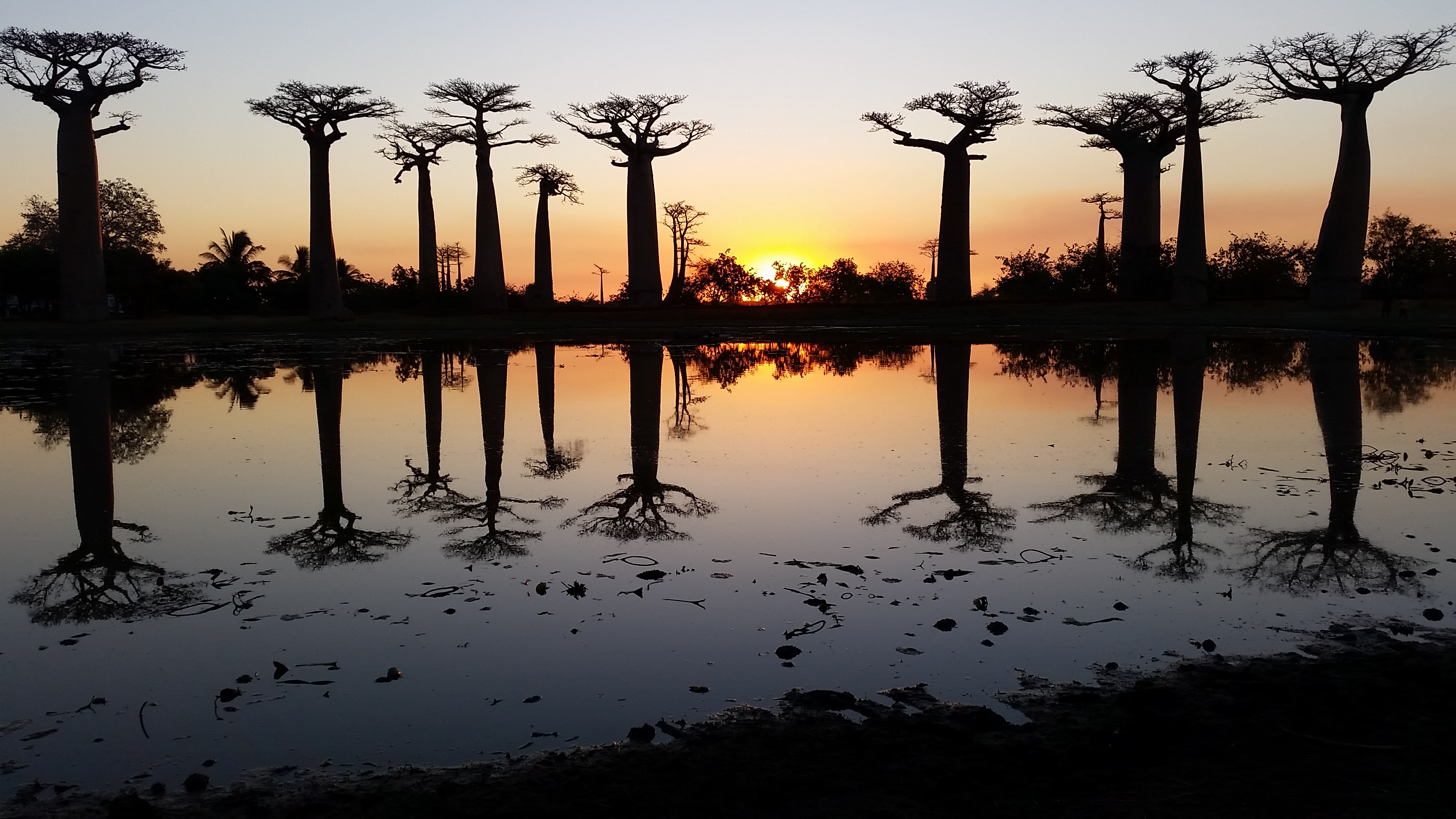

Videos
Learning Communities Journal (Special Issue)
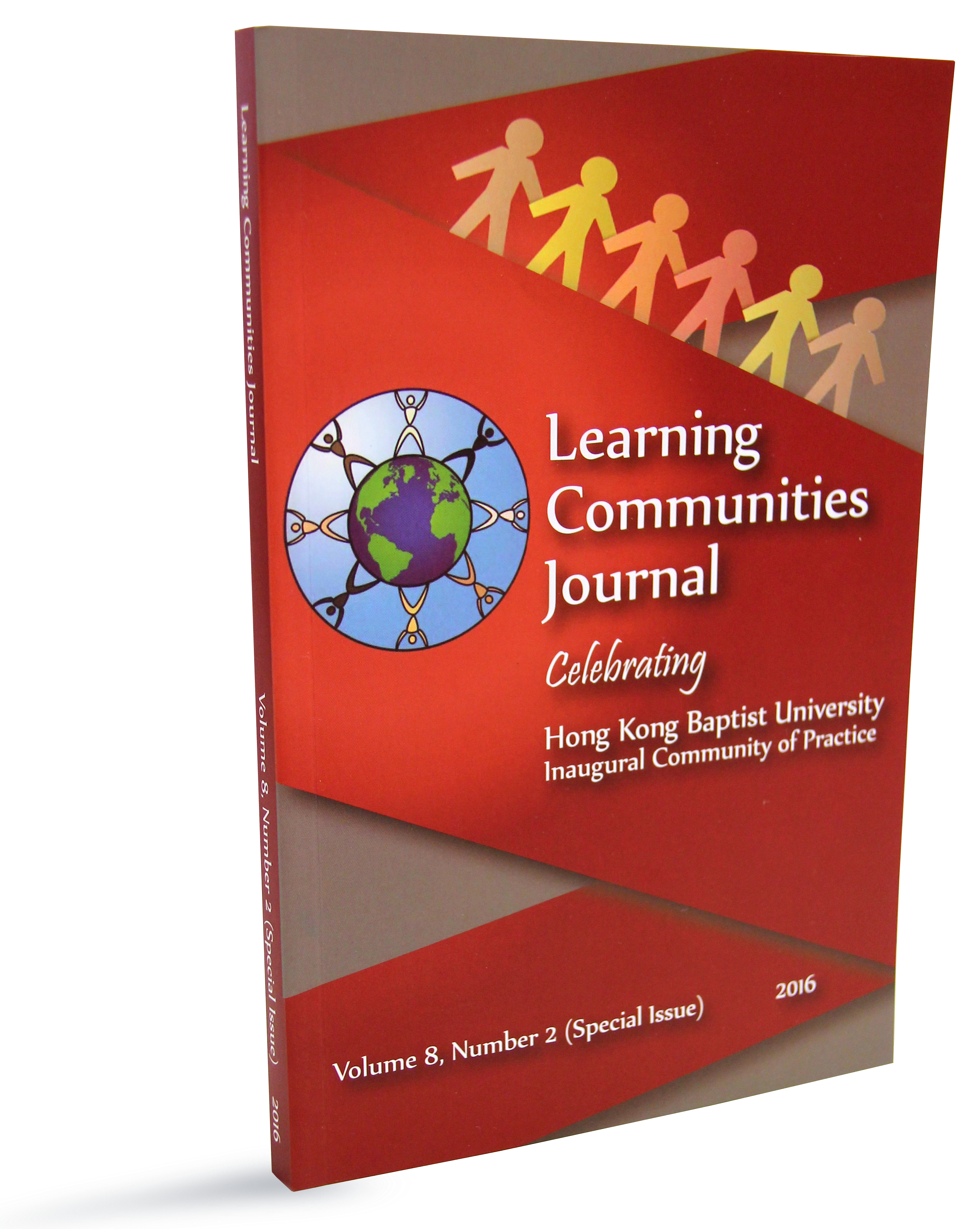

Online Version: Learning Communities Journal, Volume 8, Number 2 (2016)
- The Community of Practice Initiative at Hong Kong Baptist University: A Message From the EditorsWong, E. & Cox, M. D.
- Establishing Communities of Practice to Enhance Teaching and Learning: The Case at Hong Kong Baptist UniversityWong, E., Cox, M. D., Kwong, T., Fung, R., Lau, P., Sivan, A. & Tam, V. C.
- Networked Learning Communities: A Perspective Arising From a Multidisciplinary Community of Practice on Student EporfoliosChaudhuri, T. & Yin, C.W.
- Designing and Implementing a Two-Level Community of Practice Project to Develop a Teaching Portfolio Framework Sivan, A., Tam, V. C., Hu, A., Chan, D. W., Leung, A. Y., Chaudhuri, T., Chow, B. C., Hung, S. S., Kim, L. E., Mah, D. N., Shroff, R. H., & Wong, O. M. H.
- Using a Community of Practice to Enhance Undergraduate Students’ Graduate Attributes Through Problem-Based Learning Cheung, S. Y., Yue, K. K. M., Kwong, T., Lau, P., Ng, A., Lo, Y., Yung, K. K. L., Chu, C., Siu, N. Y. M., Choi, P. H. N., & Ng, M.
- A Community of Practice to Assess Students’ Teamwork Skills in a Team-Based Learning SettingLau, P. & Kwong, T.
- The Impact of Peer Tutoring in a University Language Classroom
Ng, A. & Lau, P. - A CoP Project Enhancing Student Learning Through a Holistic Mentoring Program in the Sciences Mak, K. K. W., Chan, W. H., Lai, K. M., Wong, K. C. K., & Lau, P.
- Service Learning for Whole Person Education in Chinese Medicine Developed by a Community of Practice Zhang, H. Q., Cheung, C. H., Tu, F., Huang, F. L., O, L., Song, L., Xu, G., Law, H., Chong, K., & Yue, K. K. M.
- Assessing the Effect of Communities of Practice in Higher Education: The Case at Hong Kong Baptist University Kwong, T., Cox, M. D., Chong, K., Nie, S., & Wong, E.
